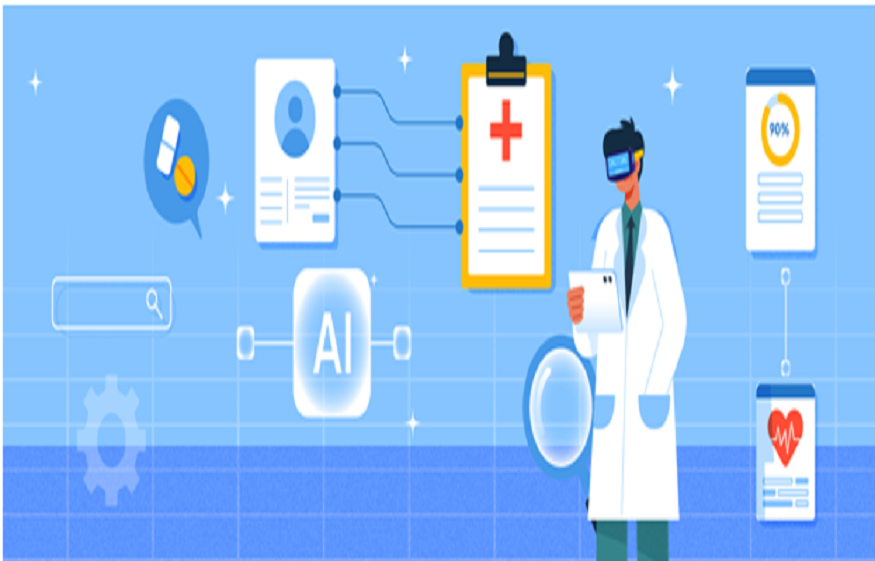
Introduction to AI in healthcare
Technology is an unseen revolution that has disrupted the healthcare industry and presented new ways for humans to manage their well-being. As trained algorithms become increasingly advanced and meticulous with their truly remarkable data-handling capacity, we are experiencing an unmatched merger of medical knowledge and computational strength.
Bringing more to the context it’s more like, when a patient books an appointment to visit a doctor for treatment plans – AI being integrated into the system, aids in patient care providing efficiency and accuracy to the processes in-plan. This progressive rush is not just about pure innovation, but more about focusing to meet the pressing and acute healthcare challenges. These needs together highlight the necessity of fatigued and fragile healthcare infrastructures. The spectrum of these challenges scales from redesigning the medical scribes with AI as a focus to utilizing machine learning for drug discovery procedures.
In this way, health services improve total productivity by making it extremely easy, and efficient, by freeing up the healthcare workforce for high-value activities that impact efficacy and patient outcomes directly. Large datasets allow the inbuilt algorithms to accurately encompass a patient’s condition and provide clinical assistance for a faster and more informed channel of decision-making. Apart from providing supreme performance, these updates and inventions make it easier for healthcare management and organizations to deliver according to the patient’s needs.
It also plays a great role in reducing major administrative burdens related to medical transcription, billing, and scheduling among many others. It automates routine operational work and alleviates the workload on healthcare personnel, who spend many hours documenting their work. These advanced solutions have helped make the healthcare system sustainable by minimizing operational procedures and increasing the efficiency of administrative methods of the susceptible healthcare system.
Benefits and Challenges of AI Adoption in Healthcare
With the integration of AI in healthcare provision, there are many challenges at hand. In the aspects of data security & privacy, the primary concern is to protect the healthcare-related content safest. There are also questions following the interoperability and data integration guidelines due to disparities in the format and role of various healthcare providers in the loop. It must also conform to the legal and ethical norms involved in handling patient information.
Furthermore, an absence of well-trained professionals to implement and exploit the benefits of trained systems within healthcare settings. This lack of understanding of the skill is therefore best addressed by proper training and educational measures which will enable the healthcare staff to reap maximum benefits from algorithm-trained solutions.
There is a need to include machine learning into the healthcare delivery process which facilitates quick adoption and improves both the quality of delivery and patient outcomes. First, healthcare providers require collaboration with system developers to build healthcare-oriented platforms that provide support. Ensuring that the usage of artificial intelligence complements human endeavor to make an impact in the care industry as counterparts of one another.
Nonetheless, the potential of artificial intelligence in healthcare cannot be overlooked given, of course, the numerous challenges and obstacles that it presents. When it comes to meticulous clerical work, they indeed can reduce the workload of the staff significantly and ensure time-saving. In addition, technological aid provides efficiency and accurate treatment planning for improved outcomes, fewer errors, and effective usage of resources.
While deep learning is becoming commonplace in healthcare, providers should introduce technologies into the industry with due diligence so that these progressive technologies are safe and practical for everyone. However, if deployed purposefully, this is the future of the healthcare ecosystem, and all members within can be optimized through efficiency, accuracy, and empathy thereby improving the experience of care providers and patients

